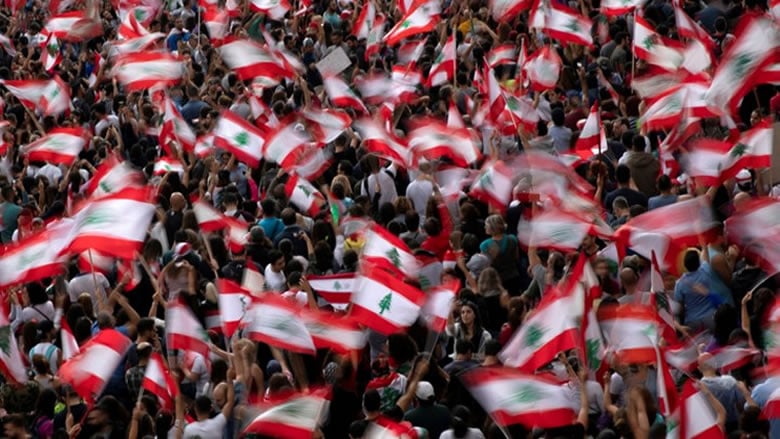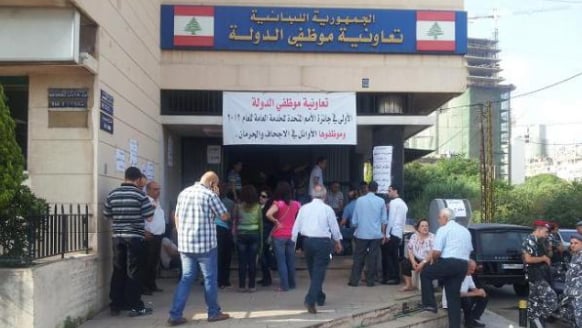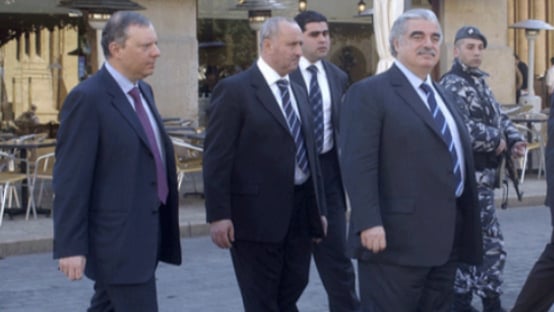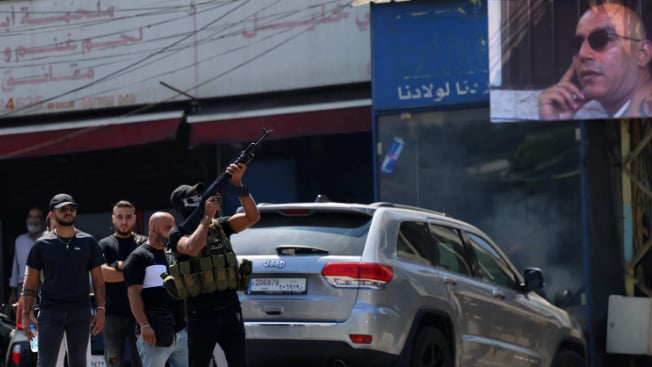Ten or even 20 years ago, the protests unfolding in Lebanon would have led news bulletins around the world—what is more compelling than large portions of the population of this small, schismatic, but strategic state united in optimism, standing together peacefully to overthrow decades of a dead-handed, morally bankrupt, sectarian kleptocracy? In a matter of days, the exasperated Lebanese protesters, waving the cedar flag that once symbolized our divisions, have declared an end to the Taif Agreement that enshrined confessional rule in 1989. The Lebanese Civil War finally ended on October 17, 2019.
The sectarian mind-set did not disappear in the plumes of black smoke from burning tires. But if the populace has turned away from a national accord that reinforced sectarian divisions, its instigators and beneficiaries—the nation’s cynical, venal, and in some cases irredeemable political leaders—continue to assert their own personal interests, with varying degrees of skill and guile. There are few, if any, heroes or citizen leaders among these gray men. After all, they all know in their hearts that the destiny of the hero is martyrdom.
And there are certainly no willing martyrs among Lebanon’s political and military leaders. No George Washingtons, Abraham Lincolns, Charles De Gaulles, George Marshalls, Nelson Mandelas, or Mahatma Gandhis. Nor is there even a Fuad Chehab, a Rachid Karami, or a Kamal Jumblatt, to name three of Lebanon’s more far-sighted leaders of the past 70 years, two of them martyrs in a real sense. No, this is the era for gray, ambitious, vindictive men who have long paraded their faults on the Lebanese political stage, in the same manner as other populist leaders around the world, including those now occupying some of the globe’s most powerful political positions.
As the president of the American University of Beirut, I have watched these protests unfold with a mixture of hope and trepidation. The protesters in Beirut, in Tripoli, in Tyre, in Sidon, in Nabatiya—who include a large proportion of our own students, faculty, and staff—must stay united to overcome the poisonous example set by Lebanon’s political leaders. Now in the second week of the protests, ambition and ego are starting to surface in an unfortunate but not unexpected way. Lebanon’s political and security leaders would like to have their battles fought for them by others. They all want someone else to eliminate their competition, allowing them to claim neutrality and good intentions. That is why we need to help steer our students, faculty, and staff away from such traps.
William Shakespeare understood the cynical nature of politicians and the self-destructive tendencies of aspiring heroes. His histories and tragedies positively drip acid with the failed judgment and vaulting ambition of their “tragic heroes,” who are not rescued by their occasional good intent, and with the cynical, self-serving opportunism of their villains. Shakespeare gives the audience a little relief, his own version of deus ex machina, at the end when the villain dies, but his estimation of the cynical manipulator is always higher than that of the naive hero, whom he always plays for a fool. He was, after all, a supplicant to the ultimate player of the power and influence game, the archetypal survivor of plots and of the affairs of men, Elizabeth I, Queen of England.
In Henry IV Part II, when the rebels surrender without bargaining their own personal safety, Shakespeare has John of Lancaster coldly state, “God, and not we, hath safely fought today.” That in a nutshell is what our political and military leaders are counting on. And they have the patience and ruthlessness to wait out any aspiring heroes.
That is also why we in the few quality institutions of higher education in Lebanon and the Arab world need to provide a counterexample, to sustain hope in our young idealists, who are now striking and occupying city squares to keep their dreams of a better tomorrow alive. We are not part of this uprising, but occupy a middle ground where we must help them complete their studies while they participate in the demonstrations. But we must convince them that the destiny of the well-intentioned citizen-leader need not always be that of the martyr, and that petty and corrupt monsters are not destined for ultimate victory, glory, and success. Irrespective of the outcome of the current protests in Lebanon (or Iraq, Chile, Hong Kong, or elsewhere), this cannot be the ultimate lesson our young people learn.
The American University of Beirut, the oldest and finest institution of higher education in this part of the world, must stand up for many principles in these times, but we must not stray from our essential mission—to equip young women and men of high quality and character with the means to advance themselves in their societies’ futures. It is not the university’s role to provide immediate substitute leaders, but to do what we do best, education. We know that at AUB our students overcome the fear of the Other, through nurturing new friendships in a diverse international community, enriching their knowledge in the humanities, the arts, and the sciences, and providing them with experiential learning opportunities through civic engagement. This consecrates the idea of service to the community as a cocurricular, rather than extracurricular, component of a liberal-arts education.
Leaders are both born and made, and the university is an essential incubator for a better kind of leader in the Arab world. This means we must work out how to resume classes, which have been suspended since October 18, even while we support and protect our students’ and faculty’s continued freedom of speech and right to protest. We must unite through dialogue and adapt, so we can deliver education to the brightest young people of the region. Some serious introspection may be required to ensure we become a better incubator, to learn what we did right and where we went wrong, and to accept responsibility for the fact that many of the gray men are our own graduates. But only then can we reinvigorate our mission as the opportunity for real change presents itself to the peoples of Lebanon, Sudan, Algeria, and other Arab countries. After all, these brave, educated, and determined young folks deserve better than the example being set for them by a small group of gray men.





